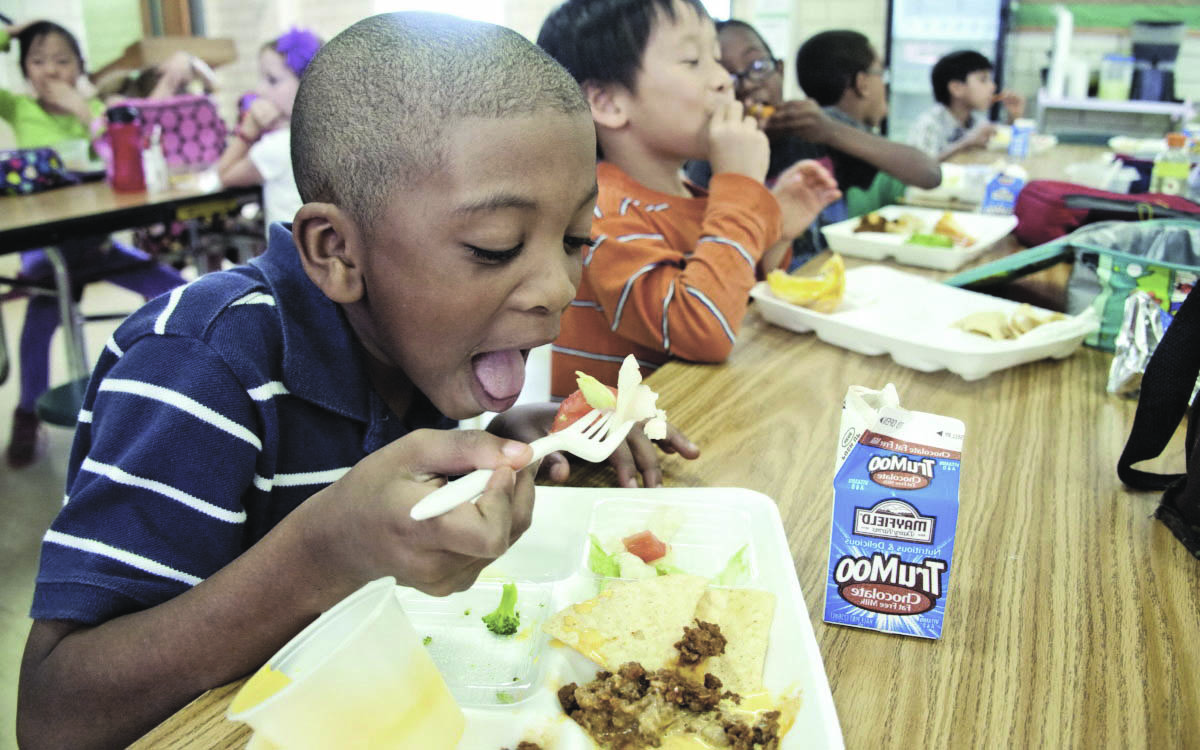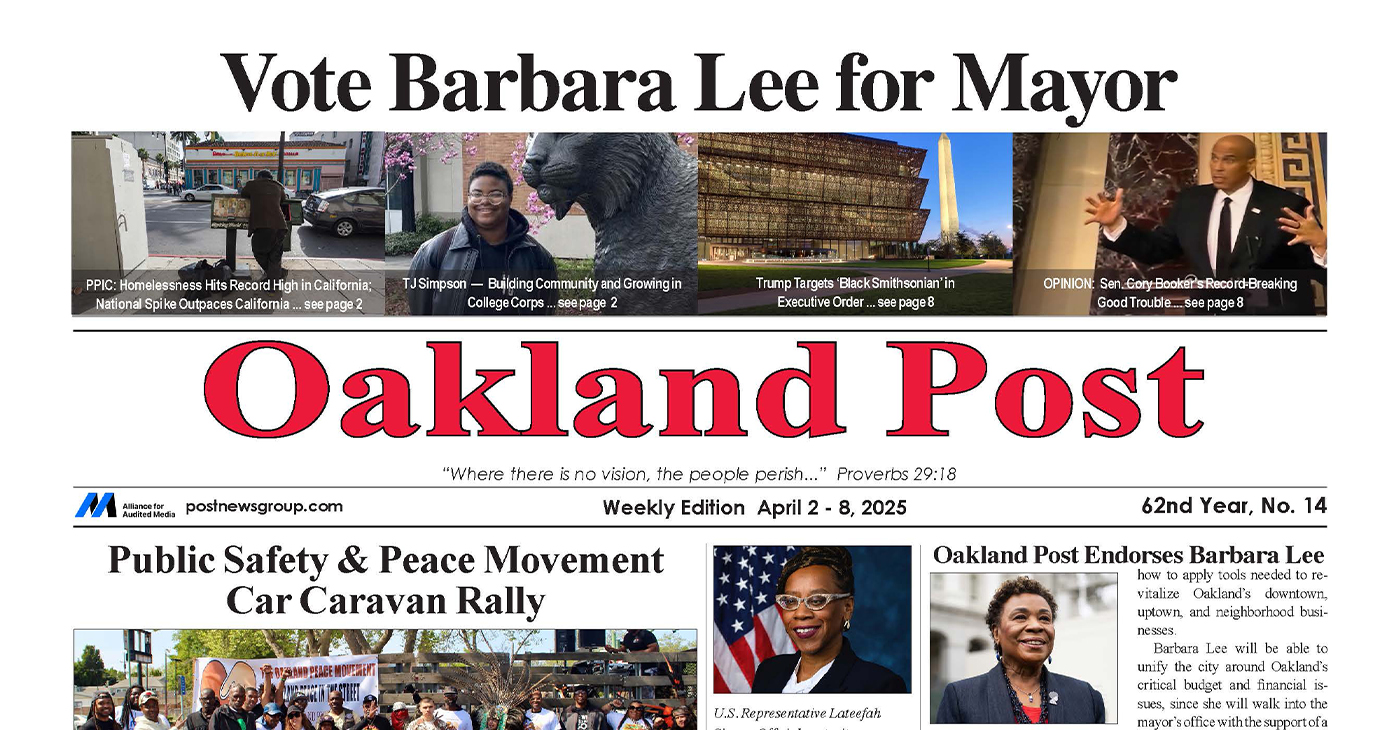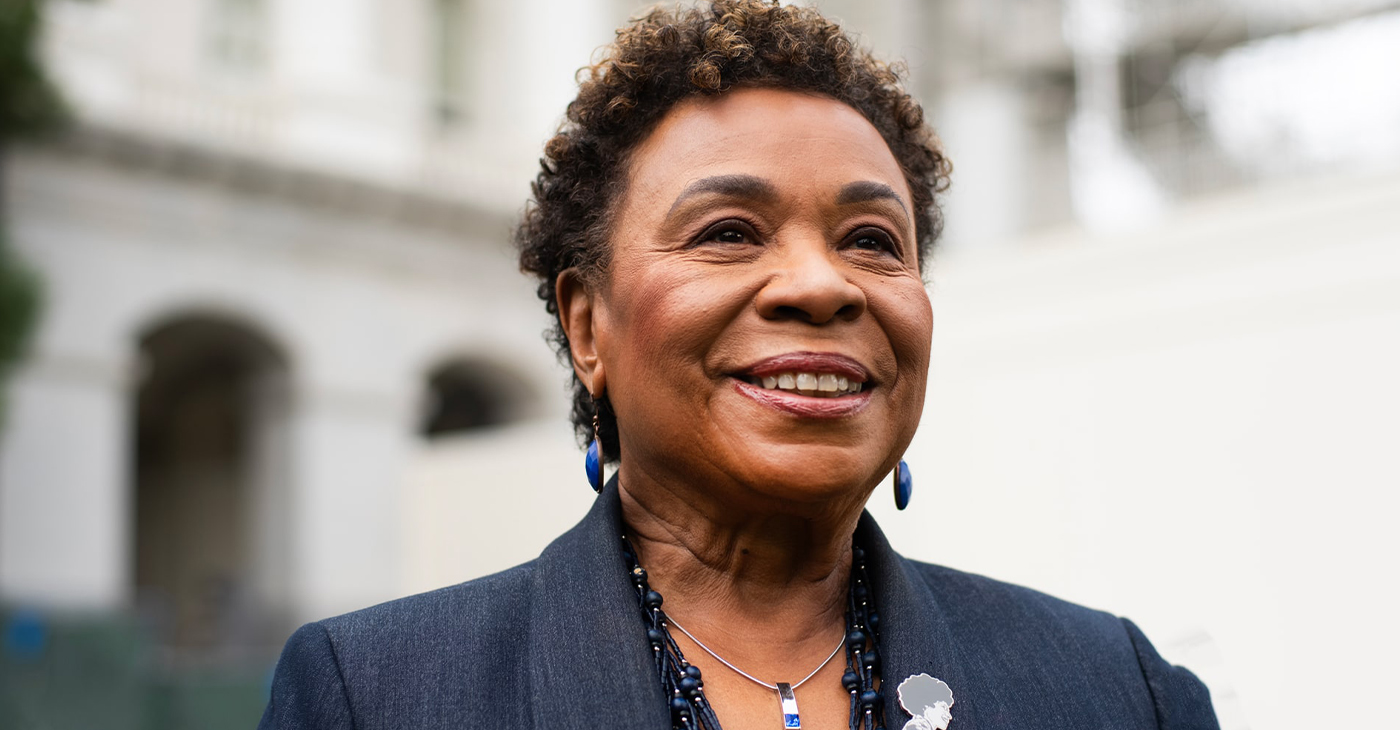Bay Area
School Lunch Could Be Slashed For Thousands of California Children Under Federal Proposal

Thousands of children in California would no longer qualify for free school lunches if a federal proposal to cut the number of food stamp recipients is finalized.
The U.S. Department of Agriculture is asking for public comment on a proposal to restrict the number of families eligible for food stamps to only those with gross incomes of 130 percent of the federal poverty level (about $33,000 for a family of four) or less. Currently many states, including California, allow families with higher incomes (up to about $50,000 for a family of four) to enroll in the food stamp program if their childcare, housing and other eligible expenses bring their income down to about $25,000 or less.
Families who would no longer qualify for food stamps under the new rule will also lose their automatic eligibility for free school meals. Currently, families enrolled in food stamps are automatically eligible for free lunch, so they do not have to apply separately. If this change is approved, many families that no longer qualify for food stamps could still qualify for reduced-price meals at school, but they would have to submit paperwork to apply.
Confusion is likely to ensue.
Jared Call, managing policy advocate for California Food Policy Advocates, said schools are supposed to notify families when students no longer qualify automatically, but often the notices are not sent, or families misunderstand them or do not apply.
“If they’re cut off and keep getting those meals, they may end up with a bill that their parents don’t understand why or where it’s coming from,” Call said.
It’s not clear yet how many children in California would be affected. The USDA estimates that 3.1 million people nationwide would lose food stamps under the policy change. According to U.S. Rep. Bobby Scott(D-Va.), the USDA also estimates about 500,000 children would lose automatic eligibility for free school lunches, though the department did not include this estimate in the proposal.
About 2 million children in California are in families that receive food stamps. There are no estimates yet of how many of those might lose eligibility if the new rule is approved.
The administration says the change is necessary to prevent fraudulent applications for food assistance.
“Too often, states have misused this flexibility without restraint,” said U.S. Secretary of Agriculture Sonny Perdue in a press release announcing the proposal. “The American people expect their government to be fair, efficient and to have integrity — just as they do in their own homes, businesses and communities. That is why we are changing the rules, preventing abuse of a critical safety net system, so those who need food assistance the most are the only ones who receive it.”
Education experts and advocates for low-income families are concerned about how the change could affect children.
“The California Department of Education is very concerned about the Trump administration’s proposal,” wrote Scott Roark, a spokesman for the department, adding that the department is still analyzing the impact.
The proposal would also affect students at schools that serve free breakfast and lunch to all students, regardless of their household income. Those are schools in which 40 percent or more of students qualify for free lunch either because they are enrolled in a program like food stamps or because they are homeless, foster or migrant children. There are more than 3,000 schools in California that offer free meals to all students.
Call, of California Food Policy Advocates, also is concerned about what he called a “cascading effect” that could affect school funding if a large number of children lose their free lunch eligibility. Under the Local Control Funding Formula, schools receive extra funding for each student who qualifies for free or reduced-price school meals, as well as English learners, homeless students and foster children.
The Trump administration proposal is the latest in a series of attempts to reduce federal benefits for low-income people.
For the complete article, go to https://bit.ly/2yHFlbI
Activism
Oakland Post: Week of April 2 – 8, 2025
The printed Weekly Edition of the Oakland Post: Week of April 2 – 8, 2025

To enlarge your view of this issue, use the slider, magnifying glass icon or full page icon in the lower right corner of the browser window.
Activism
Oakland Post Endorses Barbara Lee
Barbara Lee will be able to unify the city around Oakland’s critical budget and financial issues, since she will walk into the mayor’s office with the support of a super majority of seven city council members — enabling her to achieve much-needed consensus on moving Oakland into a successful future.

As we end the celebration of Women’s History Month in Oakland, we endorse Barbara Lee, a woman of demonstrated historical significance. In our opinion, she has the best chance of uniting the city and achieving our needs for affordable housing, public safety, and fiscal accountability.
As a former small business owner, Barbara Lee understands how to apply tools needed to revitalize Oakland’s downtown, uptown, and neighborhood businesses.
Barbara Lee will be able to unify the city around Oakland’s critical budget and financial issues, since she will walk into the mayor’s office with the support of a super majority of seven city council members — enabling her to achieve much-needed consensus on moving Oakland into a successful future.
It is notable that many of those who fought politically on both sides of the recent recall election battles have now laid down their weapons and become brothers and sisters in support of Barbara Lee. The Oakland Post is pleased to join them.
Activism
Oakland Post: Week of March 28 – April 1, 2025
The printed Weekly Edition of the Oakland Post: Week of March 28 – April 1, 2025

To enlarge your view of this issue, use the slider, magnifying glass icon or full page icon in the lower right corner of the browser window.
-

 Activism3 weeks ago
Activism3 weeks agoWe Fought on Opposite Sides of the Sheng Thao Recall. Here’s Why We’re Uniting Behind Barbara Lee for Oakland Mayor
-

 Activism4 weeks ago
Activism4 weeks agoSan Francisco Is Investing Millions to Address Food Insecurity. Is Oakland Doing the Same?
-

 #NNPA BlackPress3 weeks ago
#NNPA BlackPress3 weeks agoRev. Dr. Jamal Bryant’s Black Church Target Boycott Mobilizes 150,000
-

 Activism3 weeks ago
Activism3 weeks agoFaith Leaders Back Barbara Lee for Mayor, Criticize Candidate Loren Taylor for Dishonest Campaigning
-

 Activism4 weeks ago
Activism4 weeks agoOakland Post: Week of March 12 – 18, 2025
-

 #NNPA BlackPress3 weeks ago
#NNPA BlackPress3 weeks agoRecently Approved Budget Plan Favors Wealthy, Slashes Aid to Low-Income Americans
-

 Activism3 weeks ago
Activism3 weeks agoGroup Takes First Steps to Recall District Attorney Diana Becton
-

 Activism2 weeks ago
Activism2 weeks agoOakland’s Most Vulnerable Neighborhoods Are Struggling to Eat and Stay Healthy












































